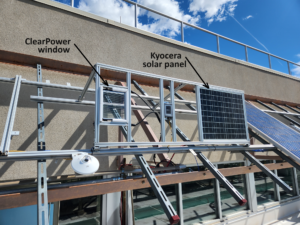Ottawa –
Quebec Minister Simon Jolin-Barrette added his voice to the Bloc Québécois and Conservatives in Ottawa, who are outraged by comments made by Liberal MP Angelo Iacono, who said Quebec would benefit from officially becoming a province. bilingual instead of having only French as an official language.
“What a lack of respect,” said Barrette, who spearheaded the reform of the French Language Charter, also known as Bill 96, at the X on Friday.
“No. Quebec is and will remain a French-speaking state. That’s what sets it apart. The federal government is always there to protect diversity, but when it comes to protecting Quebec’s uniqueness, it’s nowhere to be found.”
Iacono made the controversial comments Thursday night at a meeting of the Standing Committee on Official Languages in Ottawa.
“I believe that Quebec, and I believe that Canada, should be a bilingual country, be stronger and not just a monolingual French-speaking province, because then you will shut out others who want to learn French,” he. said.
The MP, who represents the riding of Alfred-Pellan, was one of several Liberals who switched in an apparent attempt to antagonize MPs to prevent a vote to ask the committee to expel their colleague Francis Drouin for subpoenaing witnesses. defense of “full of crap” language earlier this month.
The topic soon came up in the House of Commons.
“According to him [Iacono]French diminishes us,” said Bloc Québécois MP for Manicouagan, Marilène Gill, during question period.
 Liberal MP Angelo Iacono thinks Quebec should do more to be bilingual, drawing the ire of Conservative and Bloc MPs. (Angelo Iacono, Facebook)
Liberal MP Angelo Iacono thinks Quebec should do more to be bilingual, drawing the ire of Conservative and Bloc MPs. (Angelo Iacono, Facebook)
Gill, who sees such comments as “indicative of a cultural problem in the Liberal Party” where linguistic faux pas is on the rise, asked if the Liberals share that view and whether they intend to call their MP to order.
The Leader of the Government in the House of Commons, Steven MacKinnon, did not respond directly, but reiterated that his party recognizes the decline of French and is “committed” to “our two official languages in this country”.
As Block turned to the charge, he went on the attack.
“The block, on the other hand, is here to do what? To do one thing: to decide [Quebec] neighbors against [Quebec] neighbors, create a quarrel and divide people. That’s not why we’re here. We are for linguistic unity”, he said.
‘I’m surprised’
But Prime Minister Justin Trudeau’s team was not out of trouble as the Tories swung into action.
“I am shocked,” said Luc Berthold, the MP for Mégantic-L’Érable. “This is unacceptable! And not one Liberal MP from Quebec in this caucus stood up to denounce these comments, not even the MP for Papineau.”
It was the MNA for Orleans, Franco-Ontarian Marie-France Lalonde, who went to the front.
“This will give me an opportunity to talk about the Conservatives’ nine-year inaction on priorities for modernizing official languages, in terms of an action plan,” she said.
There is only one bilingual province in the country: New Brunswick. The only official language of Quebec is French. Conversely, English is the only official language in eight other provinces of the Canadian federation: British Columbia, Alberta, Saskatchewan, Manitoba, Ontario, Nova Scotia, Prince Edward Island and Newfoundland and Labrador.
Although Canada has two official languages, the Constitution provides that both levels of government—federal and provincial—have the power to legislate on language matters within their respective areas of jurisdiction.
In support of his argument, Iacono recounted how he began his school career in English “because the francophones, … Québecois, of French origin, didn’t want to have Italians because they felt threatened,” even though he “had to went to a French school”.
At university, after studying political science at McGill University, he chose to pursue his law studies at “The most francophone, most Quebecois, shall we say the most French of universities: UQAM”.
“And I integrated well,” Iacono said. “And I was well respected. And look: I speak French today. Sometimes there are words I don’t understand, sometimes there are words I say with an Italian accent, but I’m a product of Quebec, I was born in Quebec and I learned French”.
In fact, Statistics Canada data shows that the rate of bilingualism (English-French) is increasing in Quebec and decreasing outside the province, so it is stagnating across the country.
In fact, Quebec is by far the province where the percentage of the population able to hold a conversation in French and English is the highest. It increased from 40.8 percent in the 2001 census to 46.4 percent in the 2021 census.
At the same time, the latest census confirms once again the decline of French in Quebec in all indicators.
From 2016 to 2021, Statistics Canada observed a decrease in the percentage of Quebecers who had French as their mother tongue (from 77.1 percent to 74.8 percent), as the language primarily spoken at home (from 79.0 percent to 77.5 percent). , as their first official spoken language (from 83.7 percent to 82.2 percent) and those who can hold a conversation in French (from 94.5 percent to 93.7 percent).
As for the language most often used in the workplace, French increased from 79.9 percent to 79.7 percent.
Both the Bloc and the Conservative Party noted that Iacono’s comments were the latest in a series of cases in which the Liberals have put their foot in their mouth when it comes to protecting the French in Quebec.
For example, Saint-Laurent MP Emmanuela Lambropulos denied the decline of the French language, falsely stated that Bill 96 prevents English-speaking people from getting health care, and Franco-Ontarian MP Francis Drouin made vulgar comments.
– With the collaboration of Émilie Bergeron in Ottawa and Caroline Plante in Quebec City
This report by The Canadian Press was first published in French on May 31, 2024.
#Making #Quebec #bilingual #disrespect #JolinBarrette #idea
Image Source : montreal.ctvnews.ca


